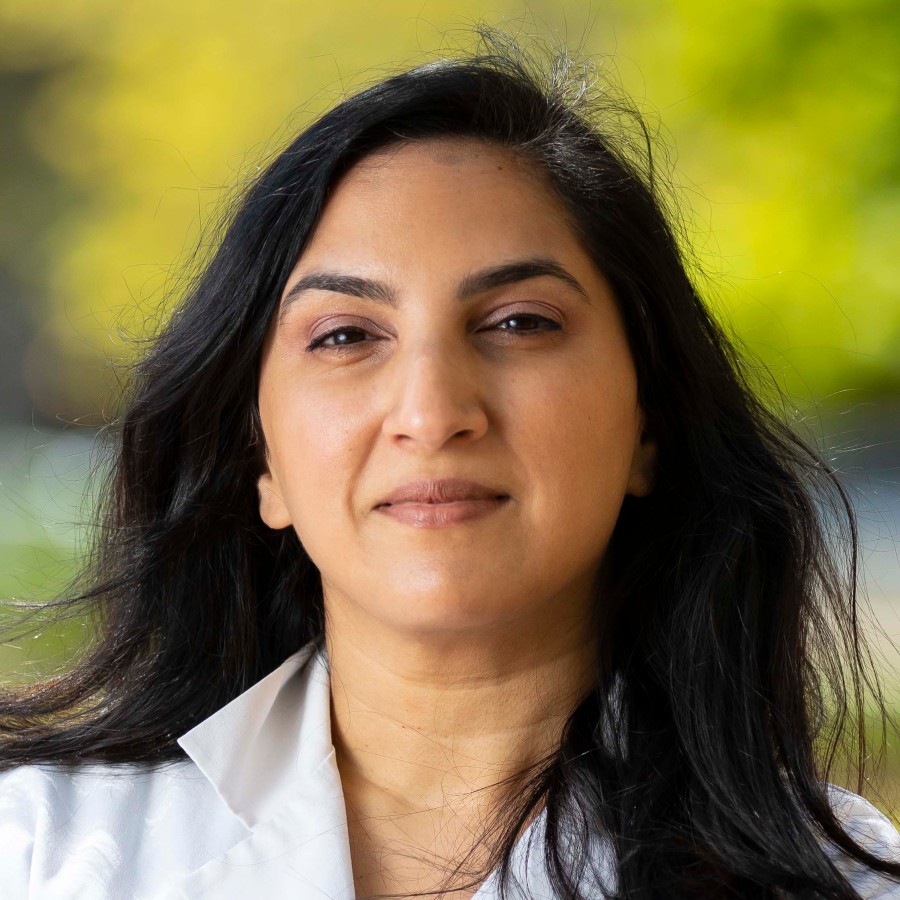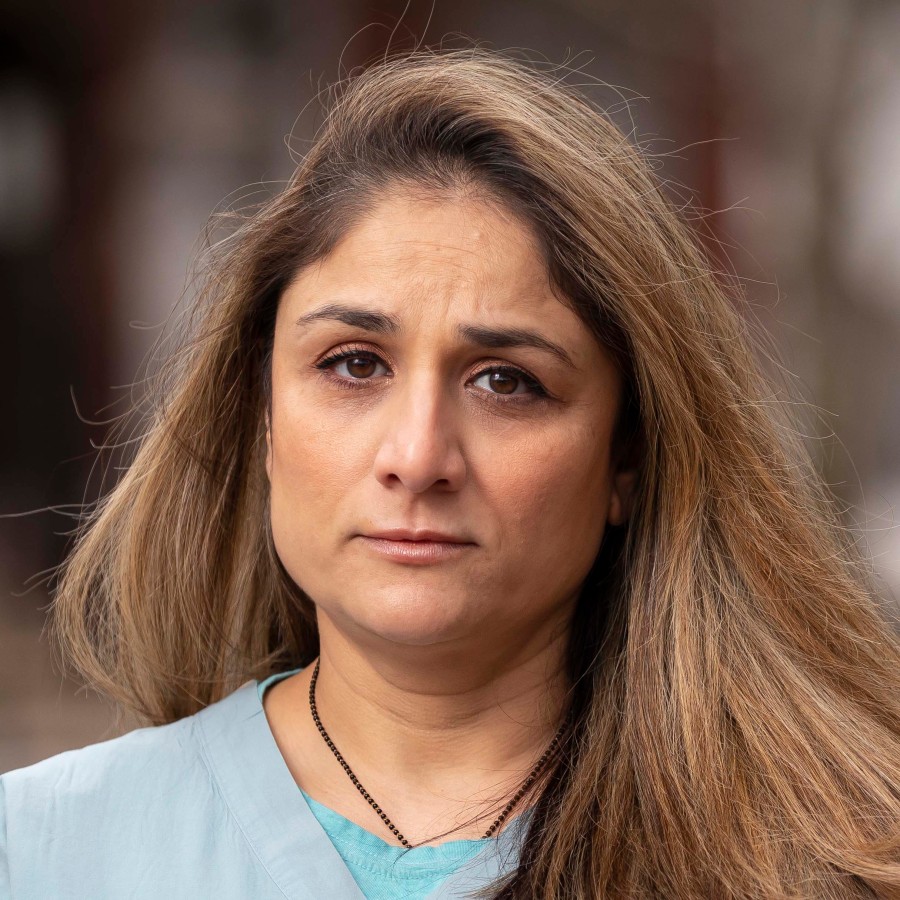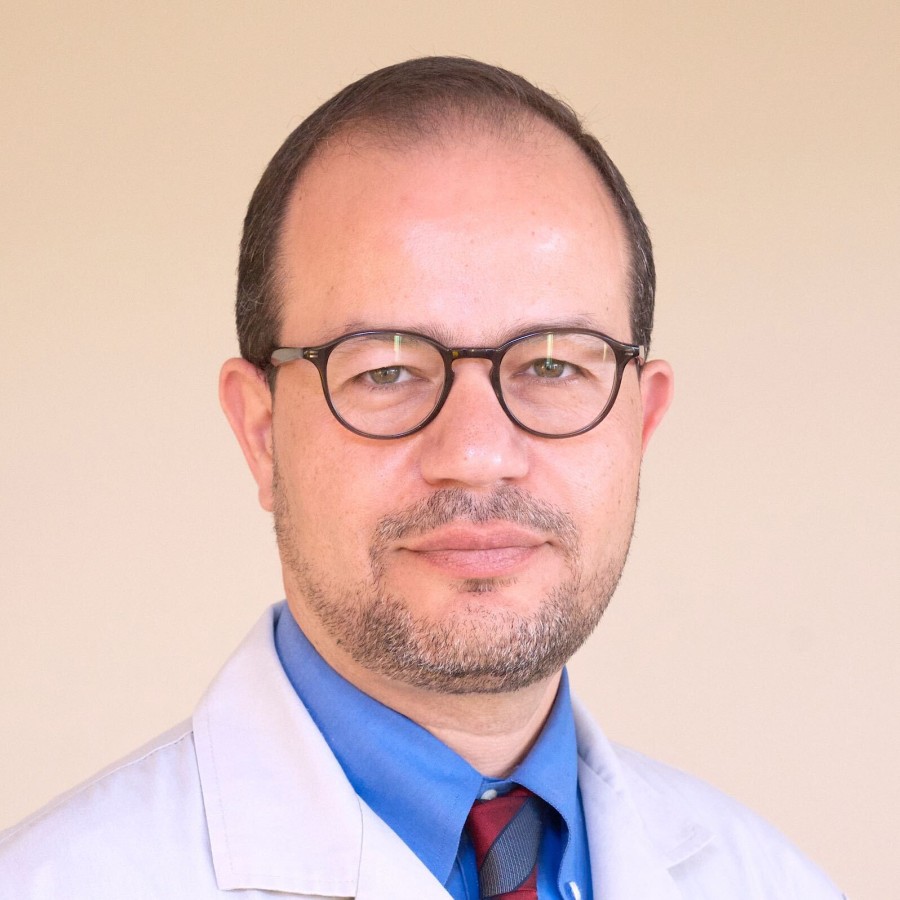What 3 Health Care Workers Learned About The Pandemic — And Themselves
By Mariah Woelfel

What 3 Health Care Workers Learned About The Pandemic — And Themselves
By Mariah WoelfelWBEZ is chronicling Illinois’ road to recovery, bringing you stories of people as they move on from COVID-19 physically, emotionally and economically.
Soon after the pandemic hit Illinois, experts started sounding the alarm that this catastrophe would take a toll on the mental health of the frontline workers tasked with fighting it.
WBEZ spoke with numerous nurses and doctors on the frontlines. In April and May, many of them described a chaotic and stressful work life that was challenging their personal well-being.
But as cases flattened in Illinois, some of those health care workers say they’ve been able to recover from the trauma and grief the pandemic’s first peak brought. With cases starting to rise again, we checked back in with a few of them to see what their summers have looked like and how the pandemic has changed them.

“I found myself worrying excessively about everything — over things that I knew that I couldn’t control. And I think that was my breaking point.”
—Meeta Shah
Meeta Shah, emergency room doctor at Rush University Medical Center
When we spoke to Dr. Meeta Shah in May, she wasn’t planning on seeking out mental health care to help her deal with the stresses of the pandemic. She said she felt lucky to have friends and family to rely on instead. And she spoke about some of the barriers health care workers face in getting mental health care, including stigma.
On seeking out mental health care (from a May conversation): “It’s this concept of: I don’t want to appear weak. If I’m in a support group, I’m revealing my weakness to other health care workers within my community. So whether or not they work at my hospital, I’m still revealing myself as potentially weak. … I’m not validating that feeling. I think that we can do better for each other. But I’m just saying that I think that’s definitely a part of it.”
But when we checked in with her this month, Shah said the burden eventually became too much to bear. She eventually scheduled an appointment with a mental health provider, which she said helped immensely.
On why she sought help (present): “I was feeling a little crushed by my imposter syndrome. I knew that I could go to work and be a physician, but I was like, maybe I’m not good enough. It is this kind of strange feeling that we’re literally learning [about the coronavirus] as we go. And that’s a really hard thing to keep up with. I was having trouble sleeping.
And I was definitely feeling like … I was failing as a mom. I knew I was letting [my concerns] get to me more than it should have. I found myself worrying excessively about everything — over things that I knew that I couldn’t control. And I think that was my breaking point.”

“It feels like our lives aren’t valued. Our work is not valued. Our families aren’t valued. Like we’re expendable.”
— Falguni Dave
Falguni Dave, nurse at John H. Stroger, Jr. Hospital
When the pandemic hit hard this spring, Falguni Dave moved out of her home and into an apartment in the city. She was closer to work, she said, but farther from her husband and two children. That took a toll.
On living alone in April: “I’ve never lived by myself in my whole entire life. … This was a complete: me, myself and nobody else kind of a deal. On days off, you could only do so much to pass your time. It gets very lonely. Most of the time, I didn’t want to cook for myself; I would just eat whatever is there. My routines really became distorted.”
Months later, Dave is back at home with her family, and the unit she works on at Stroger Hospital is no longer dedicated to COVID-19 patients. She used her days off for a family hiking trip to Asheville, North Carolina.
Dave, a steward for the union that represents nurses, said she’s still negotiating with hospital leadership about increased pay for nurses who cared for COVID-19 patients during the first surge. And that’s currently her biggest concern. Stroger Hospital did not immediately return a request for comment.
On fighting for hazard pay (present): “It feels like our lives aren’t valued. Our work is not valued. Our families aren’t valued. Like we’re expendable — that it’s OK if we get sick. But they don’t deem it necessary to pay us any additional money for the hazard that we’re putting ourselves through.”

“Even if we have another surge, which everyone expects because of the opening up of the economy, I think we’ll be more prepared to deal with these patients.”
— Zaher Sahloul
Zaher Sahloul, pulmonologist at Saint Anthony Hospital and Advocate Christ Medical Center
At the height of the pandemic’s first surge, Dr. Zaher Sahloul likened his COVID-19 floor to working in a war zone.
On when the pandemic first peaked (May): “I did many medical missions in war zones in Syria, in Yemen, Gaza. And I mean the same things that you see in any disaster — whether it’s war or national disaster — you see it here now with the pandemic.
We have very limited resources. So … the basic health principles [are] different. In the disaster, your main concern is, ‘Which patient I should direct my attention to because they are more likely to live?’ [instead of] ‘I’m going to give all the energy and the resources to every patient.’ We cannot afford to do that when you have a pandemic like this.”
As cases slowed, Sahloul said he has had more time to focus on individual patients. While his hospital (Advocate Christ) was once treating 300 COVID-19 patients on five floors, that’s since shrunk to about 75 patients, Sahloul said. He also said he feels more confident about how to reuse PPE, and how and when to use ventilators.
And if cases continue to rise and become a surge, Sahloul said now he thinks health care workers are in a better position to manage it.
On adapting to the pandemic (present): “Our knowledge of how to manage each patient differently is now more evolved and mature than a couple of months ago. So even if we have another surge, which everyone expects because of the opening up of the economy, I think we’ll be more prepared to deal with these patients.
You know, people think that it will come back in the fall or winter, but it has no seasonal variation. It may surge next week or in August. It doesn’t have any relationship to the summer or the temperature, so it may come anytime. We have to be ready and not flower it.”
